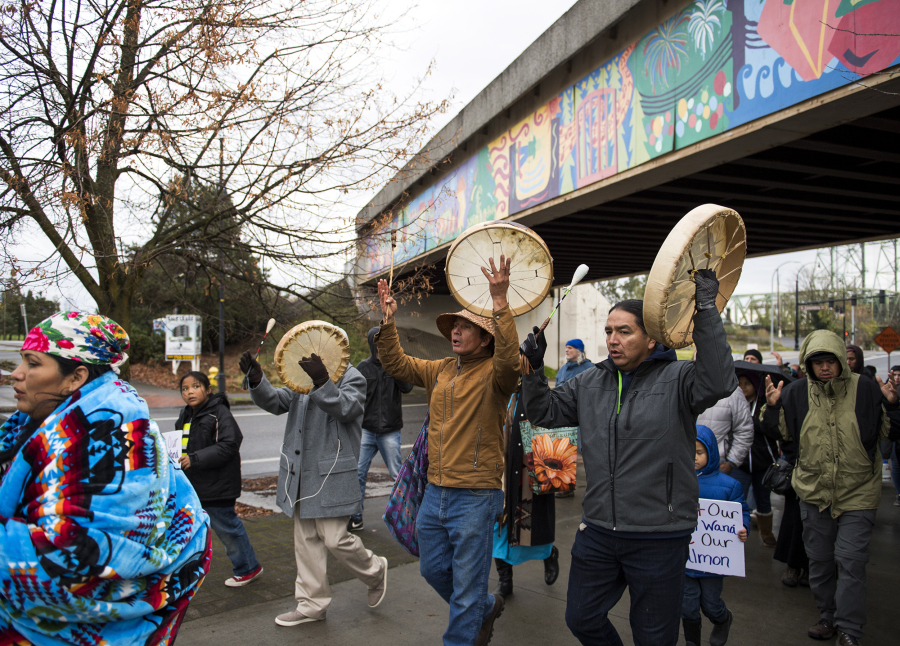Native American tribes and environmental groups protested Saturday and called for the city of Vancouver to be held accountable for recent sewage spills into the Columbia River.
Last month, two failures at the city of Vancouver’s Westside Wastewater Treatment facility led to pours of about 500,000 gallons of human waste into the river. The incidents are being reviewed by officials.
Speakers at the event didn’t mince words, putting the spills on par with ecological blows like nuclear waste disasters and oil spills. Paul Cheeokten, of the Saanich Nation, called them all a “genocide of wild salmon.”
“This river is suffering and dying from the ill minds of people who don’t understand the circle of life,” he said.




